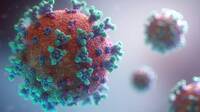UCSF Study Examines Childhood Development after Maternal Covid Infection
COVID: Long Term Increased Risk of Heart Disease Associated with ABO Blood Type
How COVID-19 Has Changed Medical Research in Global Health
 COVID-19 is a virus that devastated the healthcare systems around the globe. The main reason for this devastation was the speed of the spreading. Because it was spreading so fast, hospitals weren’t able to accommodate so many patients.
We needed to figure out a better approach to dealing with the pandemic. So, this is where most of the people on Earth stood together by being apart. We were in lockdown, but our scientists and governments collaborated more on finding the right solution.
COVID-19 is a virus that devastated the healthcare systems around the globe. The main reason for this devastation was the speed of the spreading. Because it was spreading so fast, hospitals weren’t able to accommodate so many patients.
We needed to figure out a better approach to dealing with the pandemic. So, this is where most of the people on Earth stood together by being apart. We were in lockdown, but our scientists and governments collaborated more on finding the right solution.
What Was the COVID-19 Impact on Research Priorities?
One of the major impacts of the pandemic was the speed of research. Because of the urgency and the need for a quick response, research was focused on the COVID-19 virus and therapy and vaccine development for it. The development of vaccines was heavily prioritized, but this does not imply that it is not being done presently. Epidemiology and therapeutic regimens continue to see some initiatives. However, research remains a priority with ongoing trials on many things you can participate in (link to site). This required a lot of funding and resources, so governments, private sectors, and international organizations collaborated and helped out the research process. We’ve proven that we can adapt in no time, and respond to great threats effectively and swiftly. (more…)UCSD Study Finds X’s Community Notes Fosters Learning Environment Rather Than Censorship Model
 John W. Ayers, PhD MA
Vice Chief of Innovation | Assoc. Professor
John W. Ayers, PhD MA
Vice Chief of Innovation | Assoc. ProfessorDiv. Infectious Disease & Global Public Health University of California San Diego Since the World Health Organization declared an ‘infodemic’ of misinformation, there have been surprisingly few achievements to celebrate. X's Community Notes have emerged as an innovative strategy to address misinformation as reported in the latest issue of JAMA.
In late 2022, X introduced Community Notes. This novel approach empowers volunteer, independent, anonymous, and ideologically diverse contributors to identify posts containing misinformation and to rectify misinformation by appending informative "notes" to suspect posts. The process is controlled by the public, instead of decision-makers at the company. Most importantly the system is open-sourced so it can be studied by external scientists.
NYU Study Finds Genetic Variant May Protect Against Severe Illness From COVID-19
NEJM: Cognitive Deficits Smaller With Later COVID Variants
Face-to-Face: Study Finds Peak Viral Transmission Occurs Within 5 Seconds
CDC Reports Outcomes of Pediatric Multisystem Inflammatory Syndrome After COVID
USC Study Evaluates COVID Virus Shedding in Children
Study Raises Concerns About Potential for Deer to Serve as Reservoir for SARS-CoV-2

 Response: In 2021, USDA launched a pilot study to investigate exposure of wild white-tailed deer (Odocoileus virginianus) to SARS-CoV-2, a zoonotic virus and the virus that causes COVID-19. Researchers found that 40% of the blood samples tested had SARS-CoV-2 antibodies. This initial study suggested that SARS-CoV-2 could be transmitted from humans to deer, and that deer could potentially serve as a reservoir for the virus.
To better understand the transmission of SARS-CoV-2 in white-tailed deer, a team of researchers conducted a larger study to collect and analyze respiratory samples from free-ranging white-tailed deer in the United States. The study identified SARS-CoV-2 sequences in white-tailed deer across nearly half of the states in the U.S. The researchers also found that deer could be infected with multiple SARS-CoV-2 lineages, and that these lineages could be transmitted from deer to deer.
In addition, the researchers found three cases of potential virus transmission from white-tailed deer back to humans. This raises concerns about the potential for the virus to continue to evolve in an animal reservoir, and the possibility of future spillover events.
(more…)
Response: In 2021, USDA launched a pilot study to investigate exposure of wild white-tailed deer (Odocoileus virginianus) to SARS-CoV-2, a zoonotic virus and the virus that causes COVID-19. Researchers found that 40% of the blood samples tested had SARS-CoV-2 antibodies. This initial study suggested that SARS-CoV-2 could be transmitted from humans to deer, and that deer could potentially serve as a reservoir for the virus.
To better understand the transmission of SARS-CoV-2 in white-tailed deer, a team of researchers conducted a larger study to collect and analyze respiratory samples from free-ranging white-tailed deer in the United States. The study identified SARS-CoV-2 sequences in white-tailed deer across nearly half of the states in the U.S. The researchers also found that deer could be infected with multiple SARS-CoV-2 lineages, and that these lineages could be transmitted from deer to deer.
In addition, the researchers found three cases of potential virus transmission from white-tailed deer back to humans. This raises concerns about the potential for the virus to continue to evolve in an animal reservoir, and the possibility of future spillover events.
(more…)Trained Scent Dogs Can Quickly and Accurately Detect Covid-19
 MedicalResearch.com: What is the background for this study?
Response: I became interested in dog's sense of smell several years ago while doing therapy dog demonstrations at the California Science Center in Los Angeles during a special traveling exhibit "Dogs! A Science Tail." (Now at the Orlando Science Center). I did a lot of research on this topic and taught children about it through the Los Angeles Public Library using my Great Pyrenees therapy dogs. Then, COVID broke out and I expanded my research into any work being done to possibly utilize scent dogs for screening and testing for COVID. I found only a few such studies. However, I fortuitously met Heather Junqueira of BioScent, Inc. (in Florida) online and she was beginning to successfully teach her beagles to detect COVID-related odors. She agreed to co-author a peer-reviewed review paper with me. That led to our first paper -
Dickey, T, Junqueira, H. Toward the use of medical scent dogs for COVID-19 screening. J Osteopath Med 2021;1(2): 141-148. https://doi.org/10.1515/jom-2020-0222
When the COVID pandemic began to wane at the beginning of this year, I felt that it would be the perfect time to do this comprehensive follow-up review to see how far COVID scent dog research had progressed. To our amazement, research efforts had increased by almost tenfold and involved over 400 scientists using over 31,000 samples (including sniffings) from over 30 countries and that 29 peer reviewed papers had been published.
Heather’s inspiration for doing scent dog work came when her father contracted cancer and she wanted to find better diagnostics. She has since been successful in detecting non-small cell lung cancer with her trained beagles as well as COVID.
(more…)
MedicalResearch.com: What is the background for this study?
Response: I became interested in dog's sense of smell several years ago while doing therapy dog demonstrations at the California Science Center in Los Angeles during a special traveling exhibit "Dogs! A Science Tail." (Now at the Orlando Science Center). I did a lot of research on this topic and taught children about it through the Los Angeles Public Library using my Great Pyrenees therapy dogs. Then, COVID broke out and I expanded my research into any work being done to possibly utilize scent dogs for screening and testing for COVID. I found only a few such studies. However, I fortuitously met Heather Junqueira of BioScent, Inc. (in Florida) online and she was beginning to successfully teach her beagles to detect COVID-related odors. She agreed to co-author a peer-reviewed review paper with me. That led to our first paper -
Dickey, T, Junqueira, H. Toward the use of medical scent dogs for COVID-19 screening. J Osteopath Med 2021;1(2): 141-148. https://doi.org/10.1515/jom-2020-0222
When the COVID pandemic began to wane at the beginning of this year, I felt that it would be the perfect time to do this comprehensive follow-up review to see how far COVID scent dog research had progressed. To our amazement, research efforts had increased by almost tenfold and involved over 400 scientists using over 31,000 samples (including sniffings) from over 30 countries and that 29 peer reviewed papers had been published.
Heather’s inspiration for doing scent dog work came when her father contracted cancer and she wanted to find better diagnostics. She has since been successful in detecting non-small cell lung cancer with her trained beagles as well as COVID.
(more…)Antibiotics’ Usage Increased During COVID-19 Pandemic
Thermo Fisher Scientific Works to Combat Risking STI Epidemic with Better, Faster Testing
COVID Linked to Higher Risk of New Onset Diabetes
MedicalResearch.com Interview with: [caption id="attachment_60303" align="alignleft" width="150"] Dr. Zafar Janjua[/caption] Naveed Zafar Janjua, MBBS, MSc, DrPH Executive Director, Data and Analytic Services BC Centre...
Weill Cornell Medicine Studies Racial Differences in Long COVID
Murdoch Children’s Reports Surprising Finding on Preterm Births During COVID Lockdown
Factors Influencing COVID-19 Vaccine Hesitancy in Eastern Pennsylvania
Geisinger Study: Methadone ‘take-homes’ during COVID-19 Resulted in Greater Methadone Overdoses
New Drug Might Suppress Both COVID-19 and Cancer Growth
Professor of Biochemistry and Molecular Medicine
USC/Norris Cancer Center
Los Angeles, CA 90033 MedicalResearch.com: What is the background for this study? Response: Trying to find stable host cell targets to combat SARS-CoV-2 instead of chasing after the ever-mutating virus. MedicalResearch.com: What should readers take away from your report? Response: When SARS-CoV-2 infects the host cell, it creates stress leading to higher production of GRP78. Blocking GRP78 reduces the ability of the virus to multiple and infect other cells. (more…)
Some DNA Variants Raise Risk of Lupus But Protect Against Severe COVID
Covid: Safety Net Hospitals Experienced Greater Financial Losses During Pandemic
Allison Witman PhD Assistant Professor of Economics Economics & Finance Cameron School of Business University of North Carolina, Wilmington
Yu Wang PhD Assistant Professor Congdon School of Supply Chain, Business Analytics, & Information Systems Cameron School of Business University of North Carolina Wilmington David Cho PhD Assistant Professor of Management California State University, Fullerton
MedicalResearch.com: What is the background for this study? Response: The COVID-19 pandemic placed tremendous financial pressure on hospitals. Beginning in March of 2020, hospitals cancelled outpatient and elective procedures to accommodate surges in demand from COVID-19 patients. As these procedures account for more than 60% of an average hospital’s revenue, cancellation posed serious challenges to the financial health of hospitals. Revenue from COVID-19 patients may have partially offset these effects, but the American Hospital Association estimated a total loss of $202.6 billion by American hospitals between March and June 2020. In response, the U.S. government created large federal assistance programs aimed to stabilize hospitals’ financial situation as their ability to maintain operations was critical to the health of the nation. Due to differences in hospital characteristics, certain hospitals such as rural hospitals and those serving a higher share of Medicaid and uninsured patients (e.g., safety net hospitals) may have been more financially susceptible to the effects of the pandemic. These hospitals that serve vulnerable patient populations historically have had lower profit margins and were candidates for targeted COVID relief funding (e.g., Safety Net Hospitals Payments, a $10 billion component of the Provider Relief Fund). (more…)























